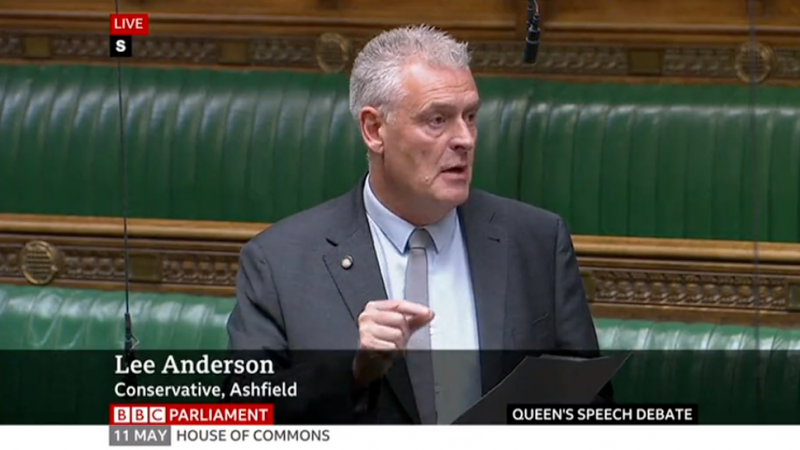
On May 5th, despite Conservative groups across the country trying to distance themselves from their embattled leader, the government reached a largely insignificant but somewhat impressive milestone: the country has, in one form or another, been ruled by the Conservative Party for 12 years. A year from now, then, (provided Boris Johnson doesn’t get his wish of a snap election that may or may not doom him) they will have been in power for the same length of time as New Labour.
Whatever other opinions you may hold about New Labour, by 2010 it gave off the impression of a tired outfit, broken by years of infighting. Andrew Rawnsley, in this book The End of the Party, spoke of the “twilight falling” on the New Labour project – and it’s easy to see parallels with the current Tory administration that Johnson finds himself leading. Whilst the current administration has done its best to claim it is running a separate project from David Cameron & Theresa May, many of the key players are still in place.
As you can see from their statements and additionally through the paucity of options to replace Johnson, there is an air of rot and decline following the Conservatives, which ‘partygate’ and the failure to tackle the cost of living crisis is only exacerbating. No MP feels more emblematic of this decline than Lee Anderson, the representative for Ashfield, and whether he likes it or not, one of the most heavily talked-about members of the 2019 intake.
Anderson announced himself to the national media by calling for the introduction of forced labour camps, before being caught on camera staging a doorknock visit for Channel 4. He followed this up last summer by saying he wouldn’t be watching the most successful English national football team of the past 50 years, because they took the knee to support anti-racism efforts.
And it seems Anderson is keen to keep himself in the national limelight. This week, he called for cooking and budgeting classes to be introduced for food bank beneficiaries based on a scheme in his constituency. Claiming that there is no ‘massive need’ for food banks in a country where the number of food banks has increased by at least a thousand in 12 years, Anderson said that we have a “generation that cannot cook a meal from scratch” and “cannot budget”. While these remarks are obviously offensive, and have been condemned as such, it’s more telling that these remarks feel like a throwback – with talk of ‘scroungers’ and misuse of benefits back on the agenda. It’s also doesn’t speak well of Anderson’s political acumen that this has now led to an argument with food poverty activist Jack Monroe, with a potentially very expensive libel case on the horizon.
The Conservatives are coming around to the same talking points that they were using in their first team is telling – having seen the country become poorer, angrier and more divided over their time in charge. Watching this government’s attempts to steady the ship with an ever-decreasing grasp on power feels akin to watching the final, discoloured season of the Sopranos as the consequences of each character’s actions finally come back to haunt them: a sepia-toned government for a hollowed-out nation.
The question, then, is where that leaves Labour. Given the state of the Tories, it could be argued that simply letting them self-destruct without proposing any policies that veer too far from the centre might be enough to propel Labour into Downing Street. Whisper it quietly, but looking at the Labour leadership, it may be that they hold this opinion too. Keir Starmer’s cautious approach, for better or worse, appears to be an attempt to win power by never rocking the boat enough to anger any potential Labour voters and – provided Durham Police doesn’t call his bluff – this strategy will likely be the bedrock of their pitch to the nation.
There is cause for concern though. As we’ve seen from beergate, the right-wing press, emboldened by Brexit and years of condemning anything remotely to the left, will try and paint the Labour leadership as a communist plot. It’s telling, in an unfortunate mirrored echo of Tony Blair, that the Sun still ran a leader article calling for his resignation, despite his attempts to woo them over the past two years. Unlike 1997, there will be a war to wage with both the Conservative Party and the Conservative press. The local elections also indicated, despite Labour’s moderate success, that the leadership cannot simply rely on left-wing voters to hold their noses and vote for an agenda they find lacking, with the Greens and smaller parties making significant inroads across the UK.
Still, with MPs like Lee Anderson still willing to air these kind of opinions in public, the lack of ideas on the Conservative side of the house is clear, which makes Starmer’s task a lot easier. 12 years into this government, it’s obvious the good ideas are gone and the good times are over. Whether this intellectual decline means the party is well and truly over for them remains to be seen.




More from LabourList
SPONSORED: ‘Industrial hemp and the challenge of turning Labour’s priorities into practice’
‘A day is a long time in politics, so we need ‘action this day’’
Strong support for child social media ban among Labour members, poll reveals